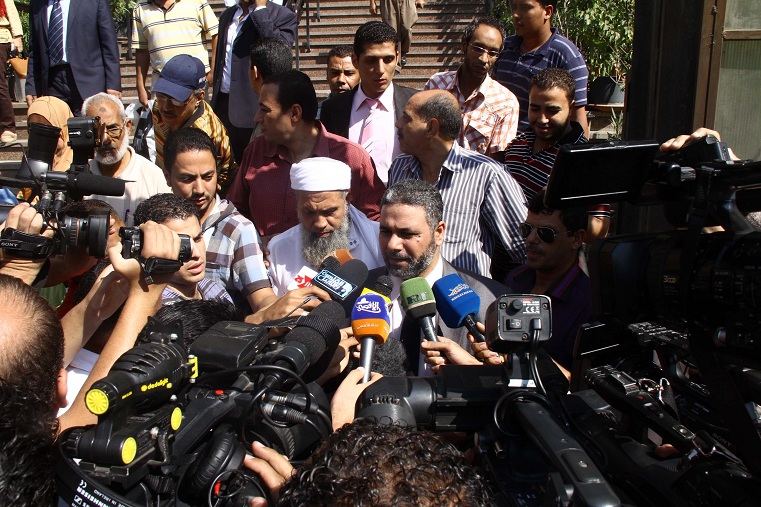Egyptian Minister of Foreign Affairs Sameh Shoukry met on Wednesday, high representative of the European Union (EU) for Foreign Affairs and Security Policy, Federica Mogherini, calling upon the EU to present solutions, where the burden of the refugee crisis is equally shared.
Ministry of Foreign Affairs spokesperson Ahmed Abou Zaid said in the statement that the minister also asserted to Mogherini the concern of countries on the Southern Mediterranean shore, regarding the EU member states’ decision to quickly return migrants who first arrived in other countries, as well as calling for building large “anchor centres” at Germany’s borders.
After the decision was taken on 28 June, Egypt announced that it refuses to establish refugee detention camps for immigrants in Egypt, noting that refugees and migrants residing in Egypt are enjoying a free and decent life.
During the meeting with Mogherini, Shoukry called for solutions, where the burden of the refugee crisis is equally shared.
Shourky also discussed the 2030 Sustainable Development Strategy—announced in February 2016—as a reference for the Egyptian side to negotiate on priorities of engagement with the EU, in order to ensure the implementation of the national development agenda. The aforementioned strategy involves elaborating on specific targets in the economic, social, and cultural categories, as well as focusing on women and youth issues.
He is in Belgium to participate for the first time in a mini-summit on Syria crisis along with his American, French, German, Jordanian, and Saudi counterparts.
The ministers are expected to discuss recent updates in Syria, particularly escalations in the south and north of the war-stricken country.
“Brussels’ summit to discuss (intensifying) efforts made by Staffan de Mistura, Special Envoy of the Secretary-General on Syria, and regional and international parties in order to push a political solution to end the crisis in Syria,” a ministry statement read.
The ministry added that this is the first time that Egypt participates in the mini-summit, because of “its vital role through its wide communications with regional and international parties to settle the Syrian crisis and putting an end to the bloodshed.”
The ministerial mini-summit came on the sideline of the NATO summit, which kicked off on Wednesday and witnessed a scathing attack on Germany by US President Donald Trump.
Trump said at his meeting with NATO Secretary-General Jens Stoltenberg that “Germany is totally controlled by Russia,” adding, “they will be getting between 60% and 70% of their energy from Russia and a new pipeline.”
Trump further criticised Germany’s “failure” in increasing defence spending, as well as calling on his allies to spend enough on defence, expressing his concerns that “the United States has to pay for them.”
He said, “many countries are not paying what they should, and, frankly, many countries owe us a tremendous amount of money from many years back.”
German Chancellor Angela Merkel responded to Trump’s accusations of Russian influence by saying that “Germany makes independent policies and decisions.”
Trump met Merkel late on Wednesday, and then French President Emanuel Marcon, before sitting down with Russian President Vladimir Putin in Helsinki, Finland on Monday.
Since the end of the Cold War, US presidents have complained that some NATO members do not spend enough on defence. Only Estonia, Greece, Poland, the United Kingdom, and the United States have met the 2% goal of military spending according to Statista.
The North Atlantic Treaty Organisation (NATO) is an intergovernmental military and political alliance between 29 North American and European countries.
The alliance is based on the North Atlantic Treaty signed on 4 April 1949. It said it promotes democratic values and enables members to consult and cooperate on defence and security-related issues to solve problems and prevent conflict. On the military level, it is committed to the peaceful resolution of disputes. If diplomatic efforts fail, it has the military power to undertake crisis-management operations.


